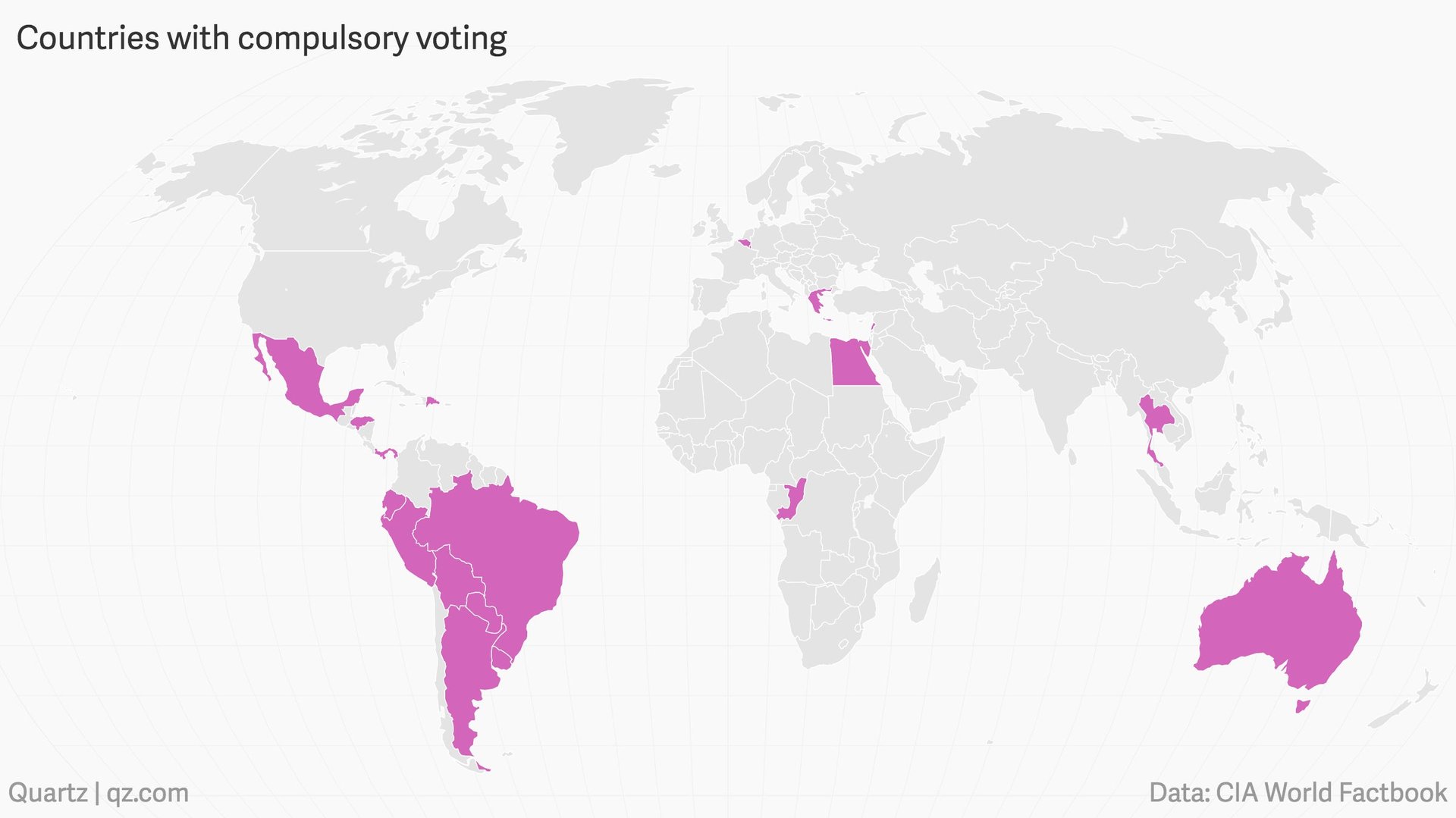There is a way democracies can create better-informed voters—but you’re probably not going to like it
US college graduates are far better informed about basic political facts than Americans with only a high school education, according to studies by the Pew Research Center. And men tend to know more about politics than women. At the same time, the US also has infamously low voter turnout compared with the rest of the world. Recent scholarship on voting laws suggests that requiring citizens to vote would not only up turnout—it might also help boost overall political awareness.


US college graduates are far better informed about basic political facts than Americans with only a high school education, according to studies by the Pew Research Center. And men tend to know more about politics than women. At the same time, the US also has infamously low voter turnout compared with the rest of the world. Recent scholarship on voting laws suggests that requiring citizens to vote would not only up turnout—it might also help boost overall political awareness.
As president Barack Obama once told a crowd, “It would be completely transformative if everybody voted.” There are obvious reasons why he’s probably right. US voter turnout is infamously low compared with the rest of the world—which isn’t great for creating a healthy democracy. While the rate has fallen over time, this decline has been particularly pronounced among less educated Americans—a gap that continues to widen, according to a 2012 report (pdf) by the Educational Testing Service. Richer and whiter people vote at higher rates than other, and are less supportive of programs that help poor families.
The solution, some argue, might be forcing Americans to vote. Consider this fact: In 2012, just 53.6% of Americans turned out to vote, according to Pew Research Center. Compare that with 80.5% turnout in Australia, where voting has been mandatory since 1924 and failing to vote is punishable with a fine of A$20 ($15). In addition to Australia, 25 countries make national voting mandatory, including Belgium and Turkey in the chart below.
But compulsory voting has the potential to do more than just increase voter turnout, according to a recent analysis by Jill Sheppard, a political scientist and survey researcher at the Australian National University. Her findings suggests that in nations that enforce mandatory voting, a wider demographic spectrum is politically informed than in other countries.
For the analysis, Sheppard uses data from the Comparative Study of Electoral Systems (CSES), which measures political knowledge by how many correct answers a survey respondent gives to three country-specific questions. The CSES data come from 133 election studies, from 1996 and 2013, held in 47 countries.
The CSES data splits countries into four categories by voting policy: strongly enforced compulsory voting, moderately enforced, weakly enforced, and voluntary.
In countries where compulsory voting is strongly enforced, those who scored well on the political knowledge questions hailed from all educational backgrounds. Not so in other countries (including the ones where mandatory voting is less rigorously enforced), where well educated voters tended to be much better informed than everyone else.
The effect on the gap in political knowledge between men and women was illuminating as well. In general, men tended to answer more of the political knowledge questions correctly than women. However, in countries with compulsory voting, this gender gap in political knowledge was much less pronounced than in other countries.
In other words, compulsory voting somehow relates to the more even distribution of political knowledge throughout the electorate.
Sheppard’s analysis echoes previous studies on how compulsory voting affects political engagement. As researchers Malcolm Mackerras and Ian McAllister note in their comparative study of political party affiliation, “Compulsory voting ensures that voters cast a ballot and the act of voting means that they are forced to think, however superficially, about the major parties.”
Still, caveats are in order. Despite what seem to be clear benefits to requiring citizens to vote, Sheppard emphasizes that the policy isn’t necessarily suitable for all countries and there are far less “blunt instruments” governments might use to increase civic engagement.